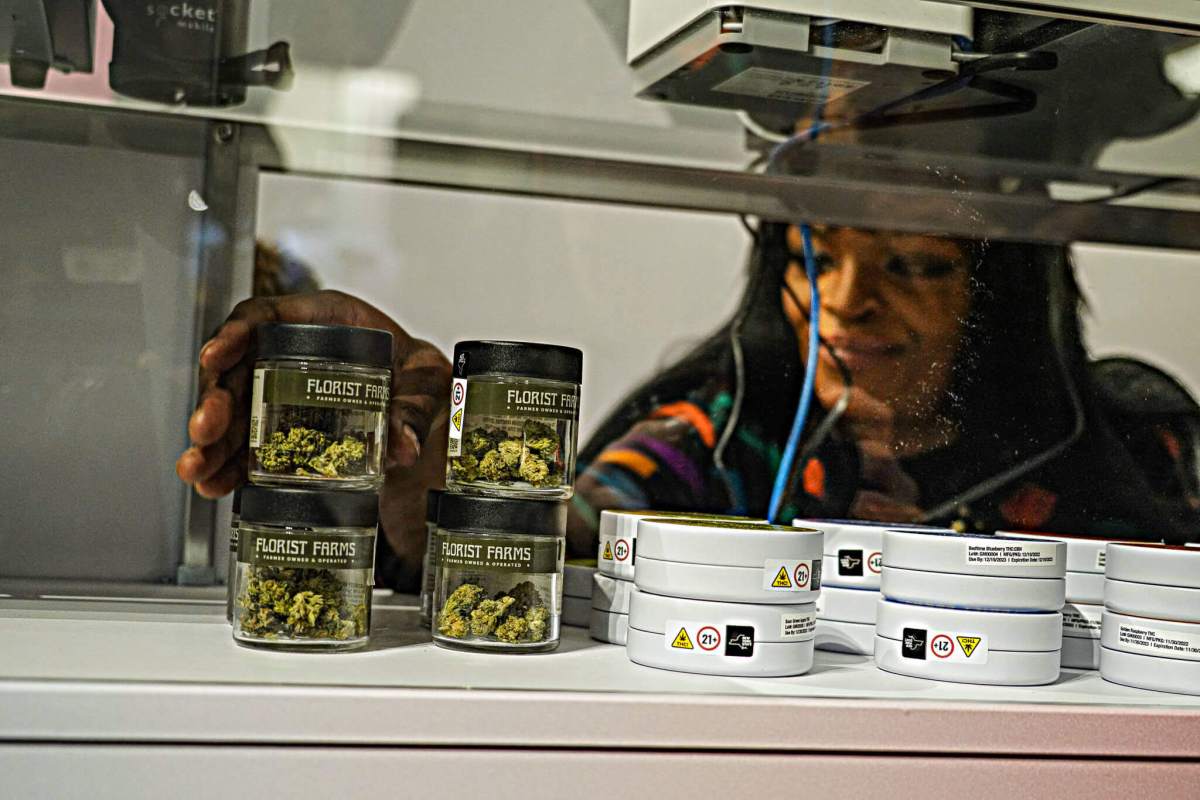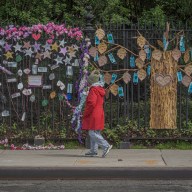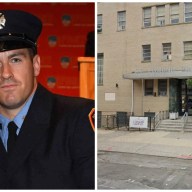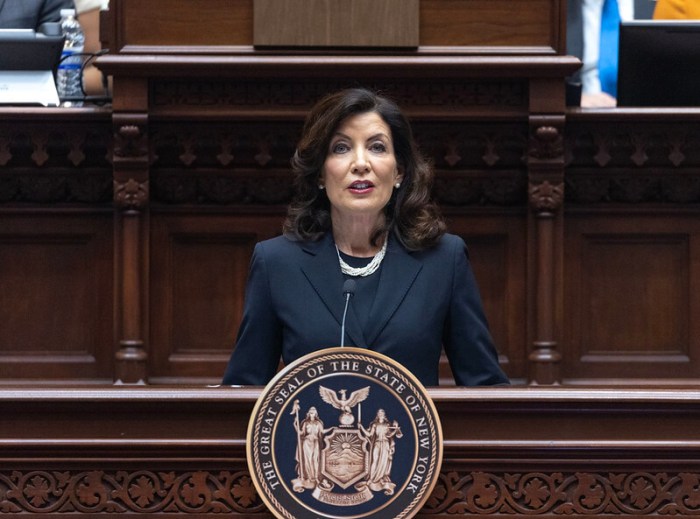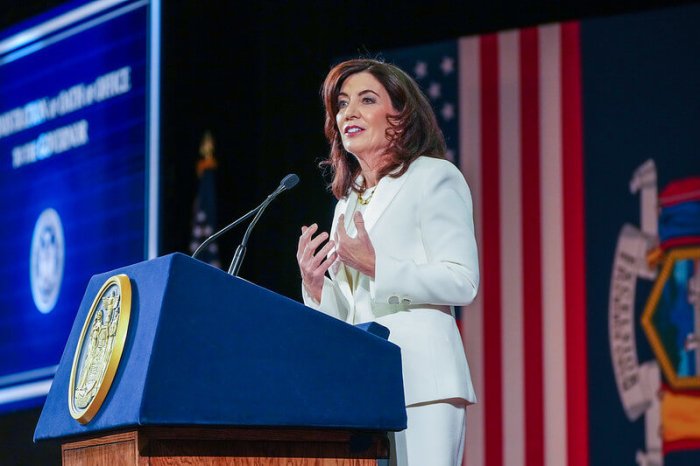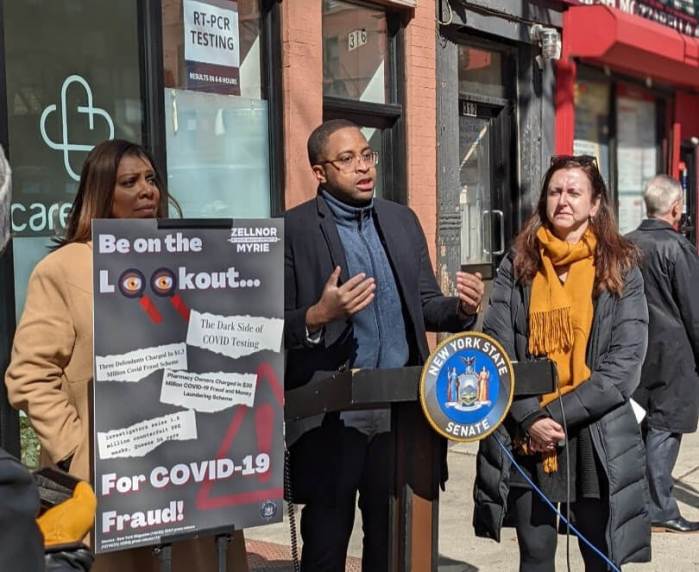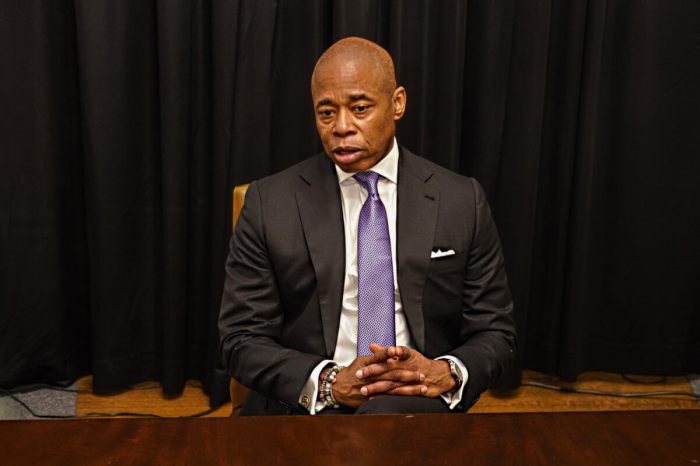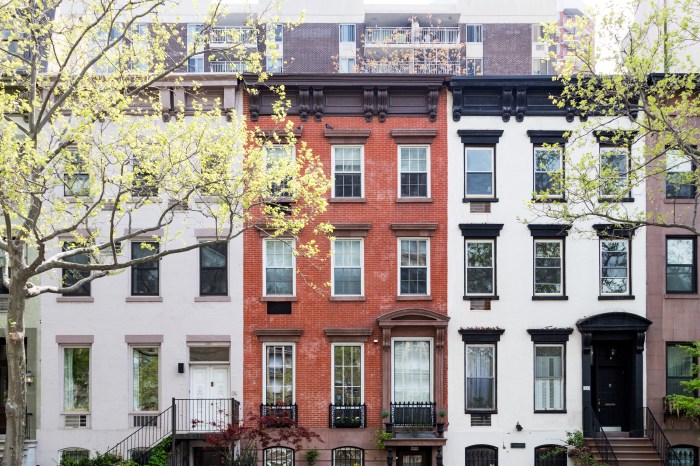After a months-long court battle, legal retail marijuana licenses will soon be granted in Brooklyn — the only borough that had been left out of the initial rollout of dispensary licenses last fall.
An injunction issued in federal court last November that prevented licenses from being issued in a number of regions — including Brooklyn — has been scaled down, the Office of Cannabis Management announced on Tuesday night. Now, the injunction only applies to the Finger Lakes — the office is free and clear to approve and open dispensaries in the rest of the state.
“This decision will allow New York’s social equity entrepreneurs to open safe, regulated cannabis dispensaries in Central New York, Western New York, the Mid-Hudson Region and Brooklyn,” said Gov. Kathy Hochul in a statement. “For the first time, New Yorkers in nearly every region of the state will have access to safer, high-quality, adult-use cannabis products. I am committed to ensuring New York continues to lead the nation in our safe and equitable approach to the cannabis market.”
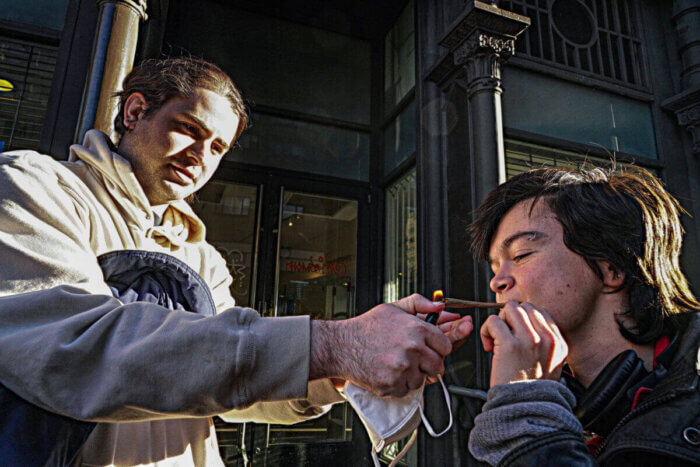
The state’s Cannabis Control Board is set to meet on Monday, an OCM representative told Brooklyn Paper – it is possible some licenses will be discussed and approved then, but it would be “such a tight turnaround.”
“I think we might see a couple in April, we’ll probably see more in May,” the rep said. “When will the first store open in Brooklyn? I would say probably give it five or so months. It’s taken a lot of folks about three to five months from their initial license to getting their shops open.”
Before the initial injunction was handed down last November, the office had been working to vet applications and identify likely candidates for the first round of licenses, he said, and OCM will hopefully be able to pick up where they left off and move as quickly as possible to get licenses approved and distributed. Large corporations are often able to move more quickly, he added, whereas individual entrepreneurs with fewer resources often need some time to get everything in order.
So far, four legal weed stores have opened in New York City as part of the state’s Conditional Adult-Use Retail Dispensary License program — three in Manhattan and one in Queens. Per CAURD, the first 150 retail licenses were to be issued to “justice-involved” people who had been convicted of marijuana-related offenses before MART passed and certain eligible nonprofits.
Last September, after it was denied a license, a company called Variscite NY One filed suit against the state and OCM in federal court, claiming CAURD violated federal law. A judge handed down an injunction that temporarily halted any licenses from being issued in the regions Variscite wanted to open stores in — the Mid-Hudson, the Finger Lakes, Central New York, Western New York, and Brooklyn.
On March 28, a new judge granted the state’s request to narrow the scope of the injunction while the case is being heard.
The delay in issuing retail licenses in Brooklyn has not discouraged illegal dispensaries in the borough from taking advantage of the “legal gray area.” In November, the NYPD and the sheriff’s office busted an illegal weed shop in Bay Ridge, confiscating $1 million in goods and arresting two people. The incident prompted the local community board and politicians to call for the state and the police to take action and shut down those shops.
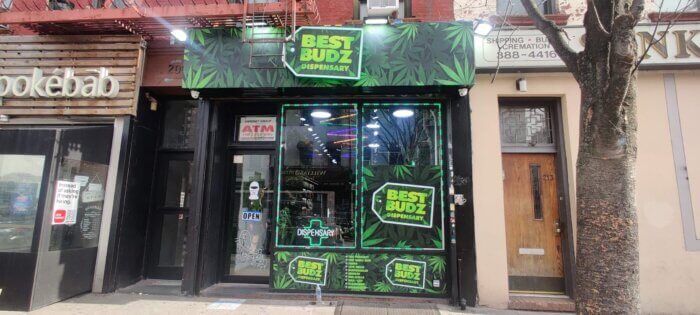
“While I support the legalization of recreational marijuana, what I’ve been saying is that the handful of licenses that they’re dripping out are going to be functionally worthless and tax revenue is going to be a far cry from what we were promised unless we get serious about shutting down these illegal shops that are masquerading as dispensaries,” said Council Member Justin Brannan, who has led the charge for more regulation in southern Brooklyn. “Thus far, we have to reinvent the wheel every time, it’s like, we have to sit down with ten different agencies to find creative ways to shut these places down.”
While the sheriff’s department has lead the charge on cracking down on unlicensed dispensaries, it is unclear whether or not it truly has the jurisdiction to do so, union reps said in a letter to city officials earlier this month. City Hall maintained that it does — and called on the state government to create clearer, stricter enforcement guidelines.
In response, Hochul on March 22 introduced new legislation that would allow OCM, the state Department of Taxation and Finance, and law enforcement officials to double down on its efforts to shut down and penalize illegal dispensaries and “ensure the success of new cannabis businesses in New York,” according to the governor’s office.
“Adult-use cannabis taxes fund our schools and drug treatment and public education programs,” said Amanda Hiller, acting commissioner at DTF, in a statement. “These taxes also contribute to the New York State Community Grants Reinvestment Fund, which reinvests tax revenue from cannabis sales to communities most impacted by over policing and cannabis prohibition. These new essential tax enforcement capabilities will allow us to crack down on illegal operations and help ensure these overdue opportunities exist for those communities.”
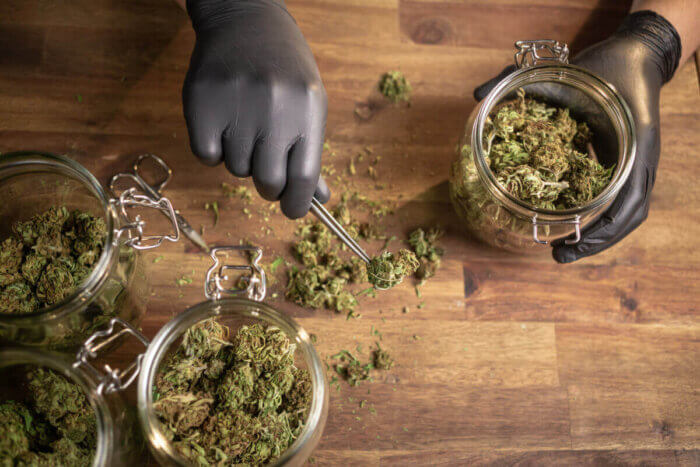
People pursuing legal licenses and sales are being “economically harmed by bad actors filling their storefronts with products that are questionable, unregulated and potentially dangerous,” added OCM director Chris Alexander.
Opening new legal, regulated marijuana dispensaries is one of the best ways to crowd out those unlicensed shops, the OCM rep told Brooklyn Paper. When people have easy access to high-quality, safe marijuana, they will purchase it there — but right now, most New Yorkers would have to commute to their nearest licensed dispensary.
“There’s got to be enforcement,” Brannan said. “People do not know the difference between a legal dispensary and one that just says in neon lights ‘Weed Dispensary.’ And a sticker on the window isn’t going to do it either. It’s good that they’re going to get licenses out the door, but if you ask anybody else, weed has been legal and the stores have been open for years.”


